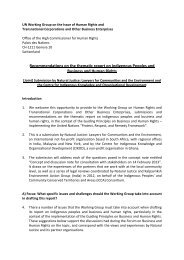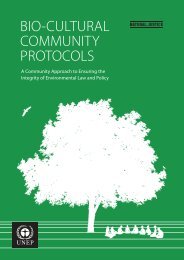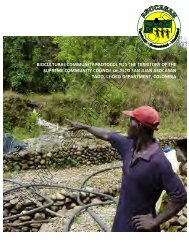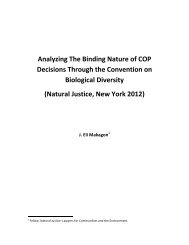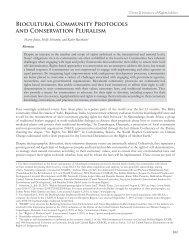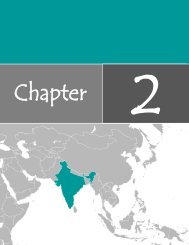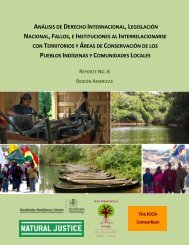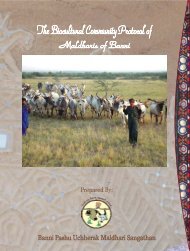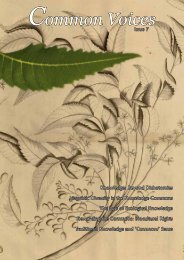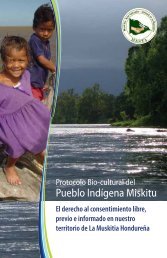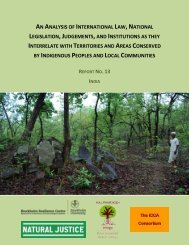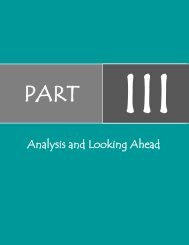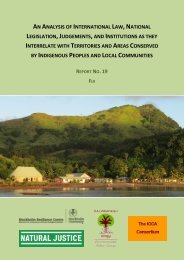English - Natural Justice
English - Natural Justice
English - Natural Justice
You also want an ePaper? Increase the reach of your titles
YUMPU automatically turns print PDFs into web optimized ePapers that Google loves.
3.3 Inappropriate Legislation Undermines ICCAsAcross jurisdictions, similar types of laws (or lack thereof) are often framed in ways that arebiased against Indigenous peoples and local communities, further hindering their ability toretain the integrity of their ICCAs.a. Lack of Recognition of Customary Laws and TraditionalAuthorities, Institutions and Decision-making ProcessesUndermines Community CohesionClosely linked to human rights, many countries do not recognize or respect Indigenouspeoples’ and local communities’ customary laws and traditional authorities, institutions anddecision-making processes. Where these are not recognized, culturally embedded systemsof caring for territories and resources and engaging with others are undermined, oftenleading to deterioration of traditional languages and sophisticated systems of knowledgeand practice. Notably, the multifaceted role of women in ICCAs is often overlooked. Instead,peoples and communities are required to establish institutions that accord with thedominant national paradigm in order for their authorities to be recognized asrepresentatives. This violates a number of international human rights instruments and canlead to outsiders ‘consulting’ with and obtaining the agreement of imposed structuresinstead of the legitimate traditional authorities, which further undermines communitycohesion and internal capacity to respond effectively to external threats.Non-recognition of Community StructuresIn countries like Suriname and Chile, the official administrative systems only recognizepolitical representative structures, Western-style organizations and local governmentstructures that do not necessarily represent the opinions and aspirations of Indigenouspeoples and local communities. Often, as in Suriname, they are also affiliated with andinfluenced by political parties.b. Lack of Recognition of Customary Land Rights is a FundamentalIssueAlthough there have been a range of land tenure reforms worldwide to address historicalinjustices, many of these programmes have not placed sufficient emphasis on customarysystems of tenure, stewardship or trusteeship. This issue is particularly acute in Africa,where hundreds of millions of rural Africans do not have secure land rights. Additionally,women often lack formal rights to land tenure. Common property resources such as forestsand rangelands remain particularly vulnerable, usually considered unoccupied, unregisteredand thus available for allocation by the state to individuals or corporations. This situation is afundamental source of insecurity and actual or potential dispossession for up to half a billionpeople across Africa. Similar situations exist in many formerly colonized countries, such asthose in South Asia.Insecure land rights mean that Indigenous peoples and local communities are unable tolegally enforce their customary ownership, rules and control, particularly when thegovernment issues exploitative concessions and other permits in their territories. It also



